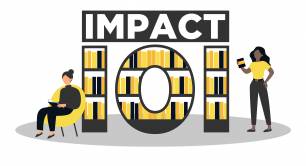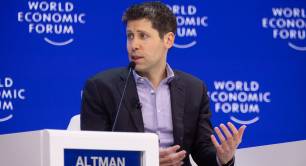The Editor’s Post: Can fossil fuel firms truly deliver social impact?

A 'social impact agency' responds to criticism for working with a fossil fuel giant: this week’s view from the Pioneers Post newsroom.
It’s fair to say that Michael Shanks, the UK government’s under-secretary of state for energy security and net zero, really dug himself into a hole.
In a parliamentary debate on Monday about a proposed ban on fossil fuel advertising and sponsorship, Shanks, arguing against the ban said: “Instead of banning and blocking, our emphasis needs to be much more on empowering people to make informed choices.”
Unfortunately for Shanks, it was left to Carla Denyer, co-leader of the Green Party, to inform him that the exact phrase “informed choice” was used by tobacco companies to campaign against the ban on tobacco advertising adopted by the UK in 2002.
The debate came hot on the heels of a report published by Elisa Morgera, the UN special rapporteur on human rights and climate change, which called for a total ban on fossil fuel industry advertising and lobbying, and criminal penalties against those spreading disinformation about the climate crisis.
The marketing and advertising industry has a huge role to play in this, and the fight against fossil fuel advertising is one Clean Creatives has been battling since 2020. The campaign asks PR and advertising professionals and agencies to sign a pledge to refuse to work for fossil fuel companies, arguing that “fossil fuel corporations are the world’s leading polluters and the biggest greenwashers”.
Clean Creatives publishes an annual “F List”, which documents known relationships between fossil fuel clients and advertising and PR agencies. The most recent edition (2024) detailed 1,010 fossil fuel contracts held by 590 agencies in 2023-24.
Interestingly for the social impact sector, the 2023 list prompted a complaint to B Lab regarding B Corp-certified Havas Media’s contract with Shell. In July 2024, B Lab stripped four Havas agencies of their certification and declared that “other entities in the Havas group are also ineligible to certify”.
But, as pointed out to me by Peter Gilheany from Forster Communications, which is both a B Corp and has signed the Clean Creatives pledge, the problem is standards such as B Corp certification are voluntary for the marketing industry; there are no statutory guidelines governing social or environmental impact.
Peter told me: “I think it's incumbent on some of the [PR and advertising] trade bodies to start pushing for that greater transparency and offer support to agencies to provide them with a decision-making framework that will allow them to move it away from the discretionary judgement call by a senior leader.”
This absence of statutory guidelines as well as widespread misinterpretation can mean that the concept of delivering true positive social and environmental impact can be a nebulous concept to understand, let alone prove. This week I reported on We Are Futures, a UK-based firm which brands itself as a ‘social impact agency’, and the criticism it has faced for its work in creating a range of educational resources for Norwegian oil and gas giant Equinor. Can it be a ‘social impact agency’ at the same time as working with a fossil fuel giant? We spoke in depth to Clean Creatives as well as exclusively to We Are Futures’ founder and CEO, Mark Fawcett, who have clear, but different standpoints. Read our in depth analysis to explore more.
This week's top stories
‘Social impact agency’ defends work in UK schools paid for by oil and gas firm Equinor
SE100 2025: Top 100 UK social enterprises revealed
Livv and Flourish ‘doing more’ with social investment fund supporting social enterprises
Image: Equinor's Condeep platform Troll A oil platform (credit: Offshore Norge, Flickr)




